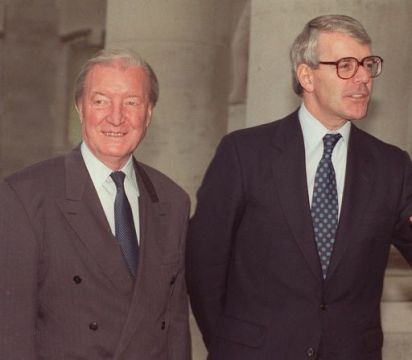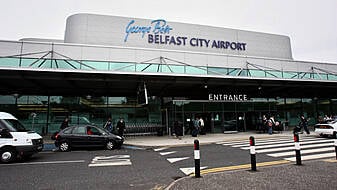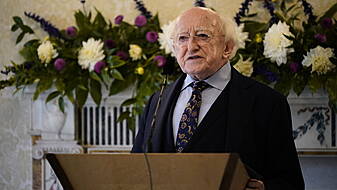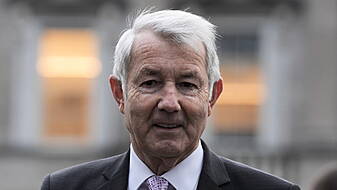The accession of John Major as UK Prime Minister was regarded by the Irish government as an “important opportunity”, according to state archives.
Mr Major was seen as less likely to back the cause of unionism as strongly as his predecessor Margaret Thatcher, an internal Irish government communique reported.
The note written by Dermot Gallagher, a senior official in the Department of Foreign Affairs, was an assessment of British thinking in 1990 for then Taoiseach Charles Haughey.
“The indications are that, as of now, Major has no fixed views or indeed little knowledge about Northern Ireland,” Mr Gallagher wrote in a memo dated December 12th 1990.
“At the same time, by instinct and temperament, the new Prime Minister is likely to find the Unionist posture essentially anachronistic.
“Unionist rhetoric – which at least at times struck a chord with Margaret Thatcher – will sit uneasily with his pragmatism.
“To the extent that the nationalist case can be couched in terms of logic and common sense, there may be a real possibility of enlisting Major’s sympathy and support.”
This came against a backdrop where Mr Major’s Conservative Party was described as shaken following the murder of MP Ian Gow in July.
The same note also speculates that the UK took the view that the Provisional IRA can “continue their campaign of violence indefinitely at the present, or even at an increased, level”.
“This has horrendous implications for their security forces and also for the protection of public persons in Britain.
“The Leader of the House, John MacGregor, privately emphasised to the Minister on Monday how shaken the Conservative Party had been – and still is – by Ian Gow’s murder.
“In the Secretariat last week, the Chief Constable emphasised the scale of the security problem – as he put it, five thousand troops could be swallowed up in any one area of the border.
“The British, I suspect, also realise that the Provisionals have the capacity, in the absence of draconian security measures, to bring down any new political structures in the North which exclude them.”
The newly published papers are contained in National Archives file reference number 2020/17/10.







